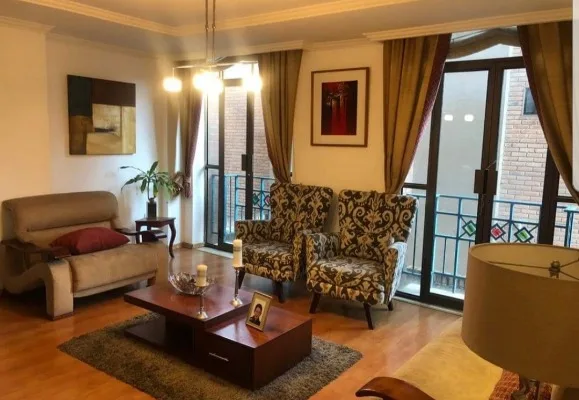Ecuador’s smugglers stay a step ahead of the customs man and make out like bandits
Editor’s note: CuencaHighLife reporter Liam Higgins talked recently to a smuggler who transports liquor, televisions, and other products across the Colombian border into Ecuador without paying the 50% to 60% import duties and taxes. The smuggler operates a warehouse “somewhere near Ibarra.”
By Liam Higgins
When customs agents began slapping “government-approved” labels on imported liquor at the beginning of the year, they thought they had dealt the country’s booming bootlegging industry a fatal blow. They were wrong.

A customs man shows off a small haul of illegal hooch.
Before the labels, liquor store owners were able to buy from smugglers at half-price and mix the contraband into their legal shelf stock. A little bookkeeping legerdemain made everything appear on the up-and-up when the tax man paid a visit.
With the labels, legitimate liquor salespeople were forced to make a choice: buy from smugglers and create their own black market and risk arrest, or simply try to make a living with the highly taxed legal imports. Most opted for the latter even though it hammered their bottom line.
Faced with losing a significant part of their market, smugglers quickly adopted a direct-to-the-customer social media strategy. Within weeks of the start of labeling, dozens of Facebook pages and other social media sites popped up advertising home delivery of imported liquor, and other products, trucked in from Colombia and Peru. Today, the top five Ecuador Facebook liquor pages have almost 200,000 members.
Smugglers even sell to expats on English-language websites.
According to one smuggler, who ships from Colombia, business has never been better.

A promo photo Jorge Maldonado uses on Facebook.
“Before the labels, there was always serious danger of being caught delivering the product to liquor stores,” says Jorge Maldonado (not his real name). “If customs heard about the delivery, they could arrest my people as well as the store owner and this was happening more than we would have liked. Selling directly to customers on social media there is still some danger but it’s much less. Even though they want to stop it, the government isn’t going to commit a police operation to busting a sale of three bottles of Scotch.”
So how do social media sales work? Can’t the G-men follow the conversations on Facebook? “Sure, but all the sales and appointments are made through WhatsApp, which they can’t hack,” Maldonado says.
As fortune would have it, at almost the same time that the government began labeling imported liquor, WhatsApp, Latin America’s top messaging app, announced it was introducing “end-to-end” encryption to keep user data private. “It was great for those of us in the cross-border transport business,” he says.
It is not just liquor that smugglers import into Ecuador. “About 30% of my business is televisions,” says Maldonado. “Ecuador’s duties and taxes are about the same for televisions as for liquor. They drive the cost up 50% to 60%, even 70%, in some cases. Let’s just say that the margin is good in the Ecuador re-sale market.”
Like most other large-scale smugglers, Maldonado maintains a warehouse (somewhere near Ibarra) where he stores his “imports,” which, in addition to tv’s and booze, include clothing, cosmetics, and variety of other highly taxed imports. “If you develop a relationship with the aduanas and police working the borders, and help them out a little, you don’t have problems. It’s all about relationships and friendships and a little something on the side.”
Maldonado says most of his shipments come into Ecuador in produce trucks. “We can bring several thousands of dollars worth of televisions and liquor into the country behind a load of potatoes.”
So how does Ecuador’s custom service — officially, El Servicio Nacional de Aduana del Ecuador Invita a los Operadores de Comercio Exterior — do in keeping smuggled goods out of the country? Not too good, according to official and unofficial statistics. From January through November, the Aduana said it confiscated $1.8 in illegal alcohol and $1.4 in electronics, mostly televisions. When asked the value of the booze and tv’s that are not caught, an official at the Aduana’s Quito office estimated $700 million and $600 million respectively. That means well over 99% of the contraband makes it safely into Ecuador.
The official who provided the estimate, by the way, was later forced by higher-ups to retract it, saying it was only a personal guess.
So what’s the future for smuggling in Ecuador? “It’s great as long as Correa is in office but things could be bad once he leaves,” says Maldonado. “We love the guy. In May, the new president will probably change things. Everyone knows the taxes don’t work, the government just won’t admit it. So we worry about the new government.”
Maldonado adds: “Maybe I’ll have to go back to raising pigs.”





















